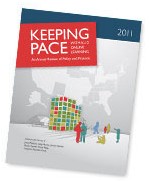 |
| Photo: FreeDigitalPhotos.net |
A flurry of reports and high-profile news articles over the past year has cast doubt on the effectiveness of online education, and raised concerns about the rapid growth of virtual education across the country. This increased attention comes as such education moves further into the mainstream of K-12 education and opens itself up to greater scrutiny.
At this point in the maturation of virtual education, the importance of high-quality, objective research is greater than ever. Education leaders need it to make informed decisions about how to use virtual education programs. But therein lies the problem: Very little high-quality, objective research on the subject is available.
Some policymakers, e-learning experts, and researchers say that K-12 virtual education is understudied, and that studies which can definitively say online learning works, or that it can surpass face-to-face education, or that in certain circumstances it provides the best opportunities for students, remains lacking even as interest in virtual education rises. Others say that research exists, but that it is often ignored because it looks at individual classes or small groups of students.
'Does It Work?'
 |
| "Keeping Pace With K-12 Online Learning" |
In the recently released "Keeping Pace With K-12 Online Learning" report, produced by the Evergreen Education Group, a Durango, Colo.-based research and consulting firm, the section on research cites the study that is most often referred to when people ask:
Does online learning work?
Read more...
Source: Education Week












